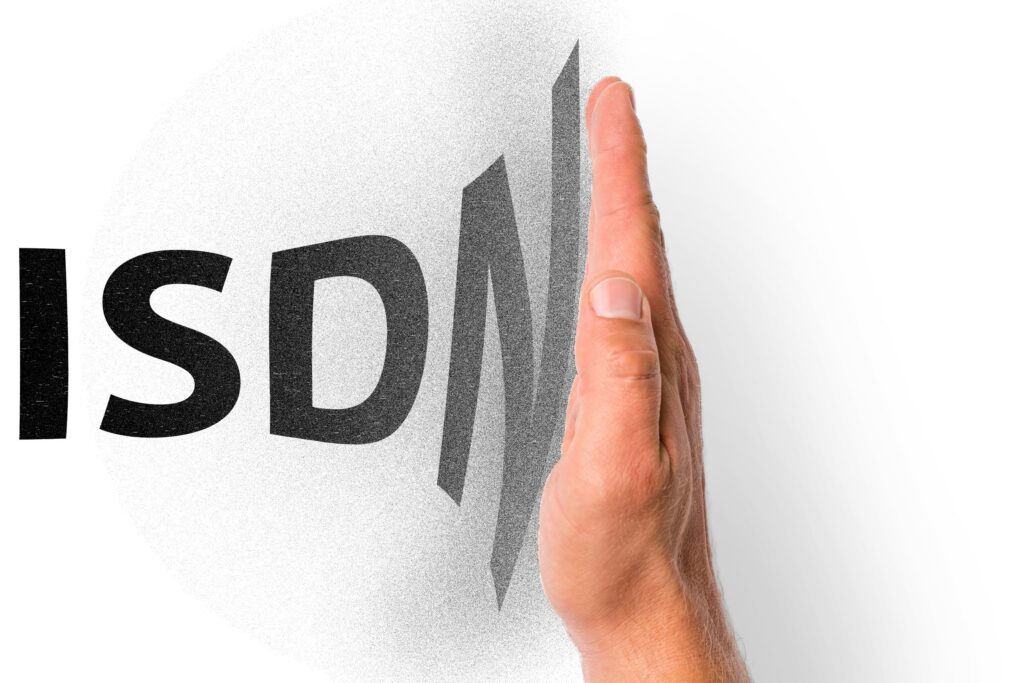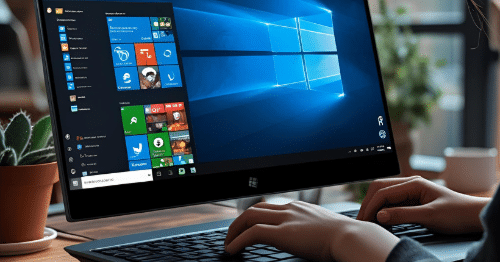Time is running out for the ISDN Switch Off

With every day that passes, the ISDN Switch Off is looming imminently. With increasing areas on stop sell and declining stock and support, the need for businesses to embrace the switch off and consider how their telecommunications need to change is becoming more urgent.
The “Switch On to the Switch Off Survey 2021” indicated that 83% of organisations had no visibility of when their services would be switched off and 77% said they have not prepared for any disruption that the switch off of these services may cause.
Covid certainly hasn’t helped the situation with businesses prevented from implementing new telecommunications solutions to prepare for the ISDN Switch Off. Not only that, but the pandemic brought the need to accelerate digital transformation bringing extra pressures on budget and demands for flexible working.
The Cloud Industry Forum suggested that 70% of the workforce are now working at least 1 day a week remotely, meaning a significant increase on video and unified communications for businesses.
Business in the News questioned 100 UK Business Leaders and it revealed that 50% of them had no idea that their existing phone and ISDN services will be switched off. In fact it is apparent that thousands of businesses that are unaware of BT’s phasing out of ISDN technology will ultimately be left without service from 2025 if they fail to switch to an alternative telecoms system.

So what can I do about choosing a new solution?
From 2025 all calls will be made over the internet meaning that all traditional phone lines connected to broadband will be affected; as a result, all calls will be determined by the strength of internet connection.
So, a new phone system will need to be robust, with a high-quality internet connection, whether it is fixed or mobile but either way it will be a top priority for businesses to implement in time, investing in a new IP voice solution to avoid delays and frustrations; any poor connectivity will have a massive impact on businesses’ communications and productivity.
When exploring other alternatives, businesses should review their needs and requirements and how they may change in the future before even exploring the advantages and disadvantages of any new solution.
Adopting IP and VoIP provides greater scalability and flexibility for now and the future with firms often opting to migrate to fibre based broadband services to have access to greater speed and bandwidth.
SIP Trunking gains businesses a higher level of control and can reduce costs as you are able to maintain existing PBX equipment through the use of an analogue adaptor or SIP gateway. Alternatively using a hosted phone system offers simple installation, minimal on-site equipment needed and no maintenance issues.
Both offer scope for scalability and customisation for business to make the transition before ISDN is switched off.
Businesses won’t necessarily need to replace all their handsets and services, as these may well have the ability to cope with your new phone systems, however, when changing over, you may want to consider the type of hardware your teams need. As a result of flexible, remote working, softphones have increased in popularity, reducing the number of handsets required.
It is fair to say that the cut off date is 2025 is when all ISDN lines will be redundant, but businesses must remember that with each passing month, BT are increasing the areas on stop-sell and the decline in services means the need to address and embrace future technology in plenty of time rather than leaving it too late.
Let Espria support you today and contact us for more information on how we can help you through your migration.
Subsribe for updates and our latest research
You may be interested in
Outgrowing your MSP; businesses need a provider that scales with their growth
To stay competitive, business leaders must align with MSPs that deliver strategic value, drive innovation, and support to scale. Now firmly into 2025, it’s becoming clear what the year has in store for the IT landscape. For SMBs, the message is clear: business growth must be matched with smarter, more scalable managed services. The demand for cyber-resilient, cloud-first and AI-integrated solutions is no longer a forecast – it’s a reality already shaping business priorities. According to leading global technology market analyst firm Canalys’ MSP Trends 2025 report, the MSP model is transforming under growing pressure…
End of windows 10 support signal urgent action needed from UK organisations as cyberattacks continue to rise
Recent breaches at major UK retailers, combined with the approaching end of life of Windows 10, highlights a critical moment for IT resilience planning The recent wave of cyberattacks targeting major UK retailers has highlighted the growing security risks associated with organisations running outdated systems and applications and maintaining weak identity verification protocols. These incidents—particularly those involving Marks & Spencer and the Co-Op—have starkly exposed how vulnerable legacy infrastructure and insufficient access controls can be. In both cases, attackers successfully posed as legitimate employees and manipulated IT help desks into resetting internal passwords, ultimately gaining…
UK SMEs must fortify their cybersecurity against geopolitical risks, says Espria
A recent Sky News investigation highlighted an uptick in cyberattacks tied to the Iran conflict that are targeting businesses across multiple sectors. Speaking at the NATO Summit, Prime Minister Sir Keir Starmer urged UK businesses, regardless of size or sector, to prioritise cybersecurity and ‘take immediate steps to review and strengthen their defences.’ While the warning is timely in tone, businesses are already becoming targets of politically motivated cyberattacks, emphasising the need for heightened vigilance. “As tensions spread globally, threat actors will continue to exploit digital vulnerabilities, and neutral businesses may be caught in the…
End of windows 10 support signal urgent action needed from UK organisations as cyberattacks continue to rise
End of windows 10 support signal urgent action needed from UK organisations as cyberattacks continue to rise
Why Businesses Should Invest in ESG: Lessons learned by Espria
In today’s competitive landscape, Environmental, Social and Governance (ESG) performance is no longer just a “nice to have”—it is a critical business imperative. Companies that prioritise ESG are better positioned for long-term success, risk mitigation, and reputation enhancement. Today’s world demands more from companies than just financial performance. Customers want transparency. Employees want purpose. Investors want resilience. ESG helps businesses manage risk, seize new opportunities and build trust with the people who matter most. It is how you can stay competitive, stay responsible and stay relevant in a fast-changing world. A powerful case study of…
The Importance of Compliance and Security: Complementary Forces in Today’s Business World
In today’s rapidly evolving business landscape, compliance and security have become paramount. These two elements, often perceived as hurdles, are in fact complementary forces that drive business success and sustainability. Understanding their importance and how they work together can transform them from perceived blockers into enablers of growth and innovation. The Role of Compliance Compliance refers to adhering to laws, regulations, standards and ethical practices relevant to an industry. It ensures that a company operates within the legal framework and maintains its reputation. Compliance is not just about avoiding fines and legal issues; it is…





